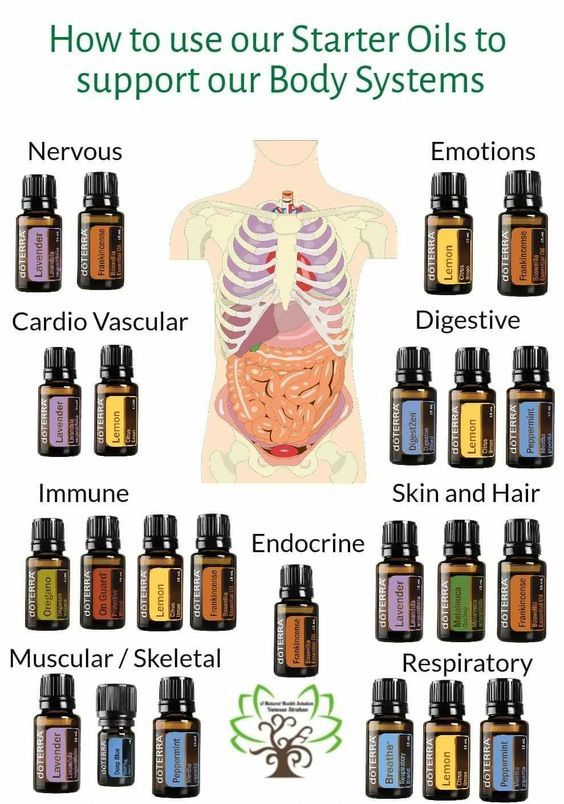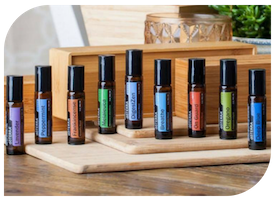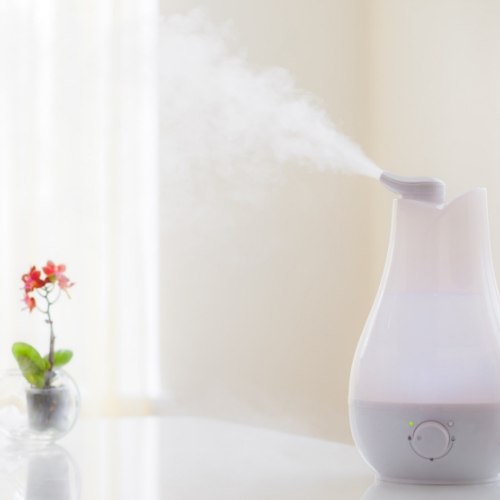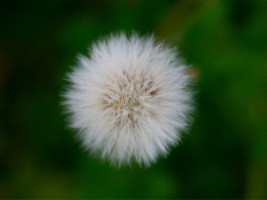Common Questions About Essential Oils

Even though essential oils come directly from plants or other elements in nature, essential oils are very powerful. On this page I’m answering some of the most common questions about essential oils – questions that I hear most often from my clients here at my Boulder studio. I highly recommend taking some time to learn about the many uses of essential oils before you start. Consider taking my Complimentary Wellness Consultation to learn how to effectively use doTERRA essential Oils for you and your family.
What are Essential Oils?
An essential oil is a liquid that is either cold-pressed or steam distilled from the leaves, stems, flowers, bark, roots, or other elements of a plant. While essential oils are in the plant, they are constantly changing their chemical composition. This helps the plant to adapt to the ever-changing internal and external environment.
Essential oils contain the true essence of the plant it was derived from. They are highly concentrated and a little goes a long way. Because they are SO concentrated, you’ll need only a tiny amount in anything you do. Really, they’ll last you a very long time. The only exception to this rule is citrus oils, which will see a reduction in potency after a year or two.
How can I use Essential Oils?
The essential oil that you choose will depend on the purpose. Do you want it to help elevate your mood? Or, do you need something to sooth your muscles? A good place to start is to get a book about therapeutic aromatherapy. There are many good books available and you will be able to find one that matches your needs.
Be sure to pay caution when using each oil and application method.
*At the moment, my most used resources are Modern Essentials and Emotions & Essential Oils Reference Book.
Here is a helpful chart with some options for how to use essential oils to support various body systems:

How should I apply Essential Oils?
Essential oils enter the body primarily in three ways— inhaled, applied to the skin, or ingested. Within each of these, there are many different kinds of application methods. Once you have purchased an essential oil, the application method depends on the condition to be treated and the desired effect.
What you’ll find is as many different opinions on essential oils as you’ll find ways to use them. One the one hand this is because of the differences between different oils. To clarify, different brands or varieties come with different precautions and even properties. On the other hand, this is because of a divide in philosophies and training. There are the uber-conservative users and the uber-liberal users. Both with their own ideas of what’s safe and necessary. With most things, the truth is found more towards the middle.
In short, it’s important to understand that each oil can NOT be used in the same way! Do your research carefully on each oil, use your judgment, read the label and start small.
3 Ways to apply:
Aromatically:
By inhaling essential oils through the nose, the smell receptors quickly absorb them. These receptors have a direct link to the limbic system by way of the olfactory nerve. In general, the limbic system is part of the brain that supports a variety of functions. This includes smell, emotions, behavior, and memory. For this reason, essential oils have an especially powerful effect via aromatic application. They can elicit powerful physiologic, mental, and emotional responses.
Topically:
It is one of the fastest, easiest ways to experience the benefits of Essential oils in the body. They are minuscule in molecular size. When essential oils are applied to the skin, their healing components are absorbed into the bloodstream by the pores and hair follicles. Once inside the bloodstream, they disperse to the specific organs and systems on which they work. Pulse points are the areas of the body where blood vessels are closest to the skin’s surface. Applying essential oils to these areas allows for quicker absorption and help them get to work faster. Essential oils do not accumulate in the body over time! They simply offer up their healing properties and then pass on through.
Internally:
Certain essential oils have a rich culinary history and can be used as dietary supplements supporting a variety of healthy conditions. When ingested, essential oils directly enter the bloodstream via the gastrointestinal tract. There they are transported throughout the rest of the body. Essential oils are lipid soluble so they are readily transported to all organs of the body, including the brain. Then, like all things we consume, essential oils are metabolized by the liver and other organs and are then excreted.
Not all essential oils are created equal. So, the ingestion of essential oils other than dōTERRA is NOT recommended. Proper dosing, according to labeling recommendations and other professional guidelines, should be strictly followed to avoid toxicity.
How can I use Essential Oils aromatically?
• Palm of your hand: Simply place one drop of essential oil in the palm of your hand. Then rub hands together and then cup them around the nose as you breathe deeply. Some essential oils induce uplifting or invigorating effects, while others are more calming.
• Diffuser: Essential oils are placed in this device, most of the time with water. (Be sure to read the directions!) The diffuser breaks them down into micro molecules then projects them into the air to fill a room or work space. Some diffusers have a timer for convenience. Essential oils should never be directly burned as the chemical structure is dramatically changed with incineration. Don’t forget to read my blog diffusers vs. humidifiers.
• Spray Bottle: Mix oils in a spray bottle with water and mist over furniture, carpet, or linens. Most essential oils are high in antibacterial, fights unwanted pathogens. Think about purifying, germ-destroying, or naturally cleansing! This makes them an excellent addition to your homemade cleaning preparations. Oils that are best for cleaning are: Lemon, grapefruit, eucalyptus, peppermint, tea tree, lavender, and rosemary.
• Cotton Ball: Apply the oil and place in the air vents of your vehicle.
• Wool/Felt Dryer Balls: Apply the oils to balls and put into dryer. The dryer balls shorten drying time, soften and fluff fabric, and reduce static.
How do I apply Essential Oils topically?
Because they hold powerful cleansing and purifying properties, essential oils have long been used to soothe, maintain, and improve the skin. Many essential oils contain chemical components. Those are useful for naturally cleansing and purifying, hence making them useful for maintaining healthy-looking skin. Essential oils are useful for reducing the appearance of skin imperfections and soothing irritated skin. But also cleansing oily skin and reducing wrinkles and fine lines. Also: promoting a healthy complexion, reducing the appearance of blemishes, and more.
In fact, along with major benefits for the skin, the chemical components in essential oils make them useful for the entire body. Some essential oils hold soothing or calming properties that help relaxing the body. Other essential oils are known for their warming or cooling properties. This can be helpful for calming the body or relieving tension. Besides, some essential oils can even promote healthy breathing when applied to the chest and neck area. A few essential oils are recognized for their ability to soothe tired muscles and joints.
Make Essential Oils work more
Essential Oils are lipid-soluble substances, which allows them to penetrate the skin easily. Although they are readily absorbed, there are many ways to increase absorption. Using a light massage will increase the blood flow to the area of application (see our AromaTouch service about that!). This in turn can improve distribution throughout the body. Use of a carrier oil can also increase absorption. This is especially in skin that is dry or flaky as it helps moisturize the skin and slow evaporation of the oil. Another effective method of topical application will be to add the oil to a lotion or moisturizer and then apply it to the skin.

It is recommended to dilute the oils especially on young or sensitive skin. In fact, it is advisable to use a carrier oil (such as Fractionated Coconut Oil) to dilute more potent oils. Besides, this is true when trying an oil for the first time. The recommended dilution ratio is typically one drop of essential oil to three drops of carrier oil.
Beneficial Areas:
Topical application allows for specific, targeted use, which allows the user to select a specific oil based on its known benefits, and apply it to a precise area to achieve a desired effect:
- Face
- Neck, base of the skull, forehead and temples
- Chest and abdomen
- Along the spine
- Arms, legs, bottom of feet.
It’s always advisable to use several small doses throughout the day rather than a single large dose. Start with the lowest possible dose (1–2 drops). A topical dose can be repeated every 4–6 hours as needed. Because every individual is unique, the dose will vary for each individual based on size, age, and overall health status.
Sensitive areas to avoid:
While essential oils vary in chemical components, potency, and aroma, there are some areas of the skin that are very sensitive to oils. So, avoid those areas—no matter what kind of oil you are using:
- Eyes and the skin around the eyes
- The inner ears
- Genitals
- Injured, broken, or damaged skin
*Please note: Citrus oils have certain constituents that can make the skin more sensitive to UV light. This can lead to discoloration of the skin or burning more easily from minor sun exposure.
Oils generally considered photosensitive are: orange, lime, lemon, grapefruit, and bergamot.
My skin is irritated, now what?
Never use water if you experience irritation. If essential oils get in your eyes or cause irritation to skin, flush and dilute the area with a safe carrier oil to ease discomfort. We recommend that you avoid applying essential oils to sensitive areas such as eyes, ears and mucous membranes.
How does internal application work?
• Gargle: A drop of essential oil is added to water. You mix, then gargle the solution and spit it out. This method works well with Melaleuca (Tea Tree Oil) and the protective blend OnGuard.
• Cooking: Remember that essential oils are much more potent than dried or fresh herbs and spices. So start with a very small amount. For more potent oils, it may be better to administer them by toothpicks. Dip the end of a clean toothpick into the oil and then add to the food, rather than drops.
• Drinking: Add essential oils to a shot glass with water, smoothy, milk, tea (honey as a carrier), or other drink.
• Veggie Capsule: Add 1-2 drops and top with olive oil/avocado oil etc.
There are so many options. Where should I start?
Doterra offers an Essential Home Kit that contains Peppermint Oil, Lavender Oil, Lemon Oil, Deep Blue, Doterra Breathe, digestZen, doterra On Guard, Tea Tree, Oregano, Frankincense Oil and the Laluz Diffuser (don’t forget to read my blog about diffusers vs. Humidifiers!)
Where can I get Essential Oils?
You can visit my dōTERRA shop to order oils for your use at home. Or contact me directly if you live in the Boulder area. To get started and join my oil community click BECOME A MEMBER and get them 25% cheaper than retail.
Make the most out of your Essential Oil Experience with tools such as storage containers, diffusers & books.
Do you have more questions about Essential Oils? Consider booking a complimentary wellness consultation with me. I’ll be happy to assist you on your wellness path!
Blog articles that might be of interest to you
***Disclaimer***
These statements have not been evaluated by the Food and Drug Administration. This information is not intended to diagnose, treat, cure or prevent any disease. The information on this site is not intended or implied to be a substitute for professional medical advice, diagnosis or treatment. Please confirm any information obtained from or through this web site with other sources, and review all information regarding any medical condition or treatment with your physician. Never disregard professional medical advice or delay seeking medical treatment because of something you have read on this website.







